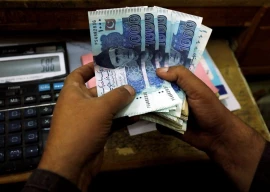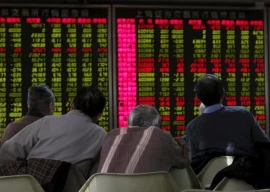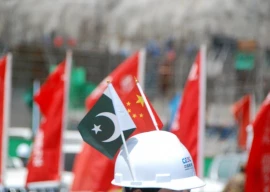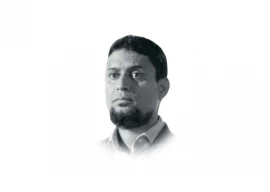
Compressed natural gas (CNG) dealers have held the central and provincial governments responsible for deadly gas cylinder explosions in vehicles, saying they have ignored dangers of fitting substandard cylinders by unlicensed shops and unskilled workers.
Speaking at a press conference at the Karachi Press Club on Monday, CNG Dealers Association President Abdul Sami Khan said CNG dealers had been pointing out for years that many people, having small shops by the roadside, were offering CNG kit conversion service without proper facilities and standard safety checks, resulting in accidents.
“We demand that only the Hydrocarbon Development Institute of Pakistan should install CNG kits and cylinders in public transport vehicles,” he said.
Rejecting the closure of CNG stations for two days this month due to gas shortage, Khan said millions of people were being denied the cheap fuel, adding consumers could be saved of inconvenience by suspending gas supply to the manufacturing industry and captive power plants.
“Sui Southern Gas Company (SSGC) people told us that closure of CNG pumps makes no difference in pressure. They have decided on CNG closure on Fridays, two Fridays have passed and two are to come after which suspension of gas supply will not be acceptable to us from January,” he said.
He also announced that government departments had defaulted on payments to CNG stations, which would stop fuel supply to government vehicles from Wednesday. “The outstanding amount was Rs250-300 million,” he said.
Published in The Express Tribune, December 20th, 2011.
COMMENTS (1)
Comments are moderated and generally will be posted if they are on-topic and not abusive.
For more information, please see our Comments FAQ
1721739746-0/BeFunky-collage-(12)1721739746-0-405x300.webp)


1726281444-0/David-henry-(1)1726281444-0-165x106.webp)













Policy of CNG promotion was alright. But no policy of standardisation, safety, security was made. Hydro Carbon Development Institute pioneered CNG with a pilot filling station in early 80's, with installation, tuning, and filling etc. Many personnel were trained as well. Later the commercialisation hype ignored any standardisation, safety of the passenger, car, and he neighbourhood. If was prohibitive to start a filling station which requires NOC's from several Governmental, security agencies only Hydrocarbon Development qualified in 1980 to obtain a license with a purposely built filling station with nothing built near the station. The roof purposely made, and the cylinders etc. The standard for filling stations should be reviewed and be consulted for the filling station, and the regular check up of the cylinders by the commercial establishment and certification is highly doubtful. The Hydrocarbon Development Institute should play its role which it did in 1980s.